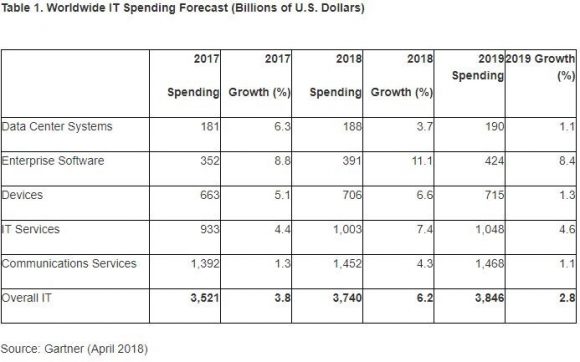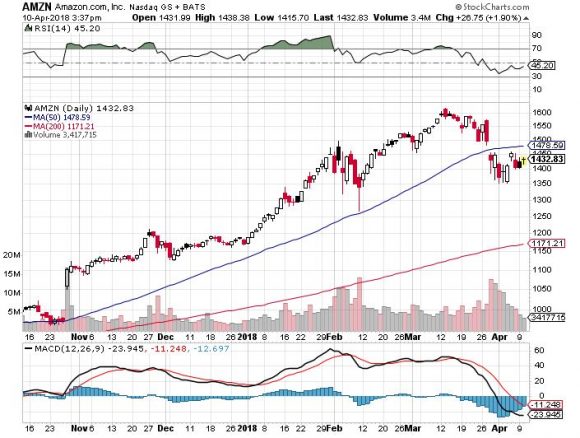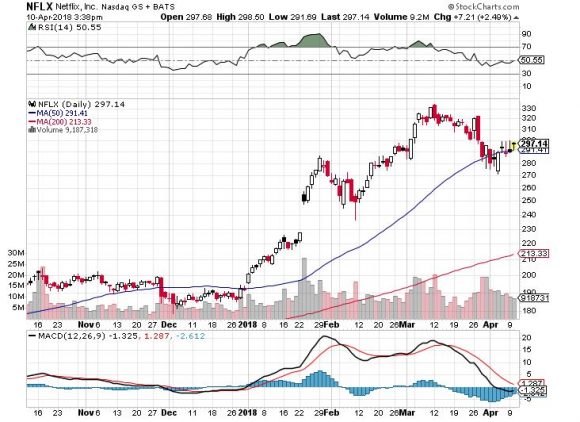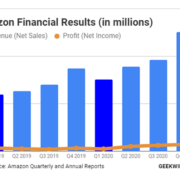Why You Should Be Betting the Ranch on Technology
Global IT spending is forecasted to surpass $3.7 trillion in 2018, a boost of 6.2% YOY, according to a report released by leading technology research firm Gartner, Inc. (IT).
This year is the best growth rate forecasted since 2007, and is a precursor to a period of flourishing IT growth.
IT budgetary resilience is oddly occurring in the face of a tech backlash engulfing Mark Zuckerberg as collateral damage during higher than normal volatility due to an unstable geo-political environment and nonstop chaos in the White House.
Zuckerberg's reputation has been torn to shreds by the media and politicians alike.
Tech has had better weeks and months, for instance as this past January when tech stocks went up every day. Facebook (FB) still had a great business model in January as well.
The biggest takeaway from the report was the outsized capital investments going into enterprise software, which spurs on exponential business formation.
Enterprise software will successfully record its highest spend rate increasing by 11.1% YOY to $391 billion. This is far and away an abnormally fast pace of increase, but is completely justified based on every brick and mortar migrating toward data harnessing.
The software industry will benefit immensely by the universal digitization of all facets of life as software acts as the tool that businessmen use to propel companies to stardom.
Application software spending will healthily rise into 2019, and infrastructure software also will continue to grow, boosted by the revamping of laggard architecture.
Data center systems are predicted to grow 3.7% in 2018, down from 6.3 percent growth in 2017. The longer-term outlook continues to have challenges, particularly for the storage segment.
The lower relative rate of spend is exacerbated by the chip shortage for memory components, and prices have shot up faster than previously expected.
The new Samsung Galaxy 9 cost an additional $45 in semiconductor chip costs because of the importunate costs that sabotage cost structures.
Exorbitant pricing was set to subside in the early part of 2018, but the dire shortage of chips is here to stay until the end of 2018.
Even though the supply side has ramped up 30%, demand is far outpacing supply, spoiling any chance for tech devices to be made on the cheap.
Global spend for digital devices will grow in 2018, reaching $706 billion, an increase of 6.6 percent from 2017. Not only will we see the standard characters such as phones and tablets, but new creative ways to produce devices in the micro-variety will soon populate our shores.
Amazon Alexa and Apple's HomePod are just the beginning and will spawn micro-devices that would fit nicely into a flashy James Bond film.
The demand for ultra-mobile premium smartphones will slow in 2018 as more consumers delay their upgrade and feel comfortable using older devices -- kind of like a smashed-up Volvo station wagon handed down from sibling to sibling.
In times of uncertainty, corporations hold back spending until the near-term variables can be flushed out, and unforeseen costs causing operational turbulence can be anticipated.
However, the industry has brushed aside the turmoil that has attempted to infiltrate the core growth story.
Investors cannot overlook that total tech spending growth for 2018 is the highest in the past 15 years.
Next quarter's earnings are now on tap, and investors will turn to fundamentals as a cheat sheet for what's in store.
It's undeniable that currently tech stocks aren't cheap anymore. They are also more expensive than they were at the beginning of the year barring Facebook and a few other stragglers.
The momentum has intensified with the five biggest tech firms accounting for more than 14% of the S&P 500 index's weighting.
Tech's relative performance has fended off the bears with PE multiples down a paltry 4.9% this year compared to the cratering of 11.4% in the general market.
And tech is still trading at a tiny fraction of the crisis of the dot-com era.
The outsized reinvestments back into business models don't tell the tale of an industry brought down to its knees begging for salvation.
Look no further than across the Pacific Ocean. Samsung Electronics Co. represents almost 25% in South Korea's Kospi index. At the same time, Asia's most valuable company, Tencent Holdings, makes up almost a 10% weighting in Hong Kong's Hang Seng Index.
Back stateside, about 90% of US tech firms beat revenue estimates in the last quarter of 2017, marking the best success rate for any industry.
The positive sentiment has continued into this year with wildly bullish expectations led by the FANG stocks.
The broader volatility is a gift to investors who hesitated and missed the monster rally that has graced tech the past few years.
Tech is vital to emerging markets. And this is the first year since 2004 that tech constitutes the biggest sector in the MSCI Emerging Markets Index blowing past financials.
Tech had a 28% weighting at the end of 2017, the weighting more than doubling from six years ago.
As it stands today, tech enjoys light regulation and by a long mile. Tech is actually the least regulated industry in America and has used this period of light regulation to stack up profits to the sky.
Banks are nine times more regulated than tech companies, and manufacturing companies are five times more regulated.
Legislation such as Dodd-Frank has done a lot to taper the excesses of the sub-prime frenzy that almost took down Wall Street.
The lean regulation has helped tech companies such as Facebook and Google build a gilt-edged competitive advantage that has been exploited to full effect.
After the Fed closed the curtains on its QE program, tech and its earnings are the sturdiest pillar of the nine-year bull market.
The Street is reliant on the big players to earn its crust of bread and show investors that tech isn't just a flash in the pan.
The two numbers acting as the de-facto indicators of the health of the overall economy are Netflix's subscriber growth numbers and Amazon's AWS Cloud revenue.
These two companies do not focus on profits and are the prototypical tech growth companies.
If they beat on these metrics, the rest of tech should follow suit.
The market is entirely dependent on big tech to drag investors through the time of transition. My bet is that tech will over-deliver booking stellar earnings.
__________________________________________________________________________________________________
Quote of the Day
"By giving the people the power to share, we're making the world more transparent." - said Facebook CEO Mark Zuckerberg







